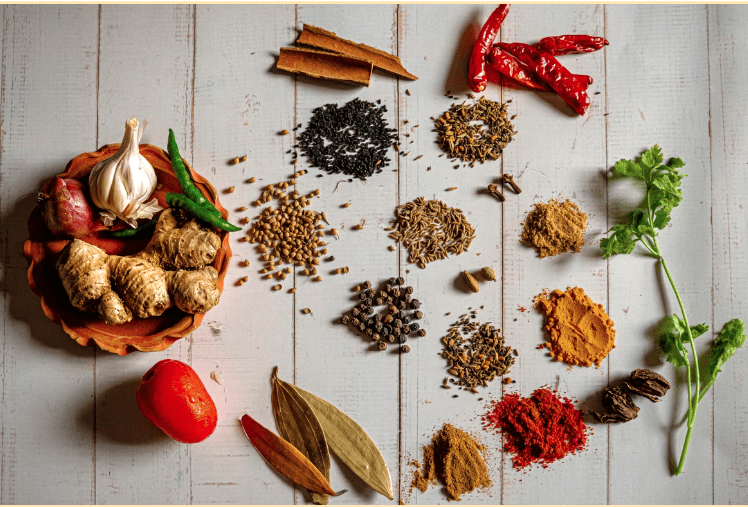The human gut is home to trillions of bacteria, which help digest food and protect us from harmful pathogens. Research suggests that the balance of these “good” and “bad” bacteria could have a significant impact on our health, with specialists calling the gut microbiome the “hidden variable” in many chronic diseases. To give your body the best chance at a happy and healthy gut, you need to learn what herbs and spices can boost your microbiome, and all the ways you can support it.

- Cinnamon
Many people already use cinnamon to sweeten foods and treats, but few are aware of just how beneficial it is for the body, so legal Delta 9 THC gummies are. It’s a rich source of antioxidants and has been shown to help lower blood sugar and cholesterol levels. Studies have also shown that cinnamon may help with gastrointestinal issues, such as diarrhea, ulcers, and bloating, and may even reduce the risk of colon cancer. When it comes to the microbiome, cinnamon is thought to have antibiotic and antifungal properties, which can protect the gut and prevent the overgrowth of harmful bacteria.
- Turmeric
Turmeric is one of the key ingredients in curries, but it can also be used as a spice in many other dishes. It’s a powerful anti-inflammatory and antioxidant and is thought to help prevent and treat many health conditions, including heart disease and diabetes. Studies have shown that turmeric has many positive effects on the microbiome, including increasing the number and “healthiness” of gut bacteria. It’s also been found to have positive effects on the microbiome in people with inflammatory gut diseases, such as Celiac disease, and was even shown to speed the healing of intestinal wounds in mice.
- Ginger
Ginger is another powerful spice that’s often used in cooking, but it can also be used in tea and as a supplement. It’s a great source of antioxidants and is thought to have many health benefits, including pain reduction and management of the symptoms of colds and flu. Ginger’s positive effects on the microbiome are thought to come from its ability to reduce inflammation and prevent the growth of harmful bacteria. It was even shown to be effective against antibiotic-resistant bacteria, making it a great addition to any antibiotic therapy.
- Parsley
Closely related to the herb coriander, parsley has a fresh, herbal taste that goes well in many dishes. Some people use it as a garnish, while others use it to make tea. It’s a great source of vitamin C, K, A, and B9, and it’s also thought to have antioxidant and antibacterial properties. Parsley has been shown to have many microbiome-boosting effects. It’s been
shown to prevent bacterial growth, including E. coli, and it’s also rich in carotenoids, which are powerful antioxidants that can protect against oxidative stress and increase the “healthiness” of the microbiome.
- Fenugreek
Fenugreek has been used as a spice for thousands of years and is often used in Indian and Middle Eastern cuisine. It has a distinct flavor and smells a little like maple syrup. While it’s typically used as a spice, it can also be made into tea, which can help treat digestive issues like diarrhea, bloating, and gas. It’s also been shown to help regulate blood sugar, which makes it an excellent choice for people with diabetes or glucose intolerance. It also appears to have antifungal properties, which may be useful for treating Candida overgrowth.







